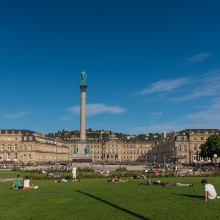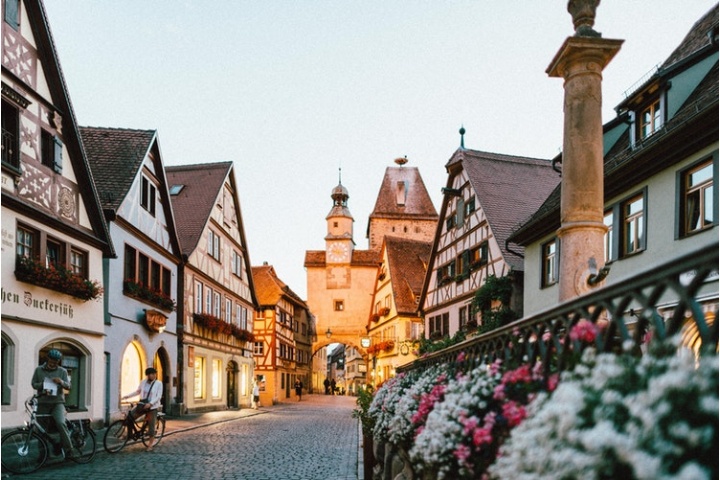While Stuttgart doesn't pop up on the mental map of most people when they think about Germany, the city has its unique world war history, an ambitious plan to become the heart of Europe and a global standing as a happy place. If you are moving here as a student and are curious to know about the city, this blog will help you get up to speed.
Name
Stuttgart is the modern version of its older name Stuotgarten which means ‘a garden for the horses’. This name has its roots in the fact that the city was founded in the 10th century by Duke Liudolf of Swabia to breed war horses for his cavalry during the Hungarian invasion of Europe.
World War history
As home to many military bases, crucial industrial infrastructure and centre of rail transportation in southwestern part of Germany, Stuttgart was in the crosshair of the Allies during the Second World War. The city was heavily bombed - around 142,000 bombs in 53 raids - between 1940 to 1945. More than 4,590 people were killed in these air attacks and 39,125 buildings were damaged or destroyed, creating 1.5 million cubic meters of rubble. Very few buildings were rebuilt and that is why one doesn't see many old buildings in the city.
Least stressful city
In 2017, Stuttgart was named world's least stressful city in a study. The high ranking was based on figures related to green spaces, family purchasing power and mental health of its citizens. Interestingly, of the 150 cities ranked, four out of the top ten most stress-free cities are in Germany: Stuttgart, Hannover, Munich and Hamburg.
Car industry
Stuttgart is home to the big car companies such as Mercedes Benz and Porsche. This is the place where the first car was created and the city continues to be dominated by the automobile industry.
Air pollution
Related to the car dominance is the fact that Stuttgart has the worst air quality in entire Germany. Due to the presence of scores of diesel-run automobiles on the road, the city suffers from a very polluted air with high levels of fine particulate. In 2016, the problem became so severe that the country had to issue its first air pollution alert, asking people to refrain from driving.
Stuttgart 21 project
The city is undertaking an ambitious railway and urban development project called Stuttgart 21, which aims to connect the city with major European
centres by heavily redesigning its train terminals. The project has become a polarizing issue, with strong supporters and opponents in both public and political domains. Many of its critics have raised concerns over its cost, perceived benefits and environmental degradation.
Immigrant population
Stuttgart hosts a big migrant population, making it a very diverse German city. According to a New York Times article, “40% percent of Stuttgart’s 600,000 residents (or 60 percent of people under the age of 18) come from abroad, twice the national average. After the Second World War, foreign laborers rebuilt local industry: first Italians, then Greeks, Spaniards, Yugoslavians, Turks. And they’re still coming. Some 20,000 newcomers arrive annually, not counting the current wave of Syrians and others. Immigrants account for one of every three start-ups.”
Architecture studies
The city has a great reputation for architecture education. Two of its institutions, Stuttgart University and Stuttgart State Academy of Art and Design, are listed among the top ten architecture schools in the entire country.
Black Forest
The famous Black Forest is just 160 km away from the city. The large forested mountain range in the south of Germany has pristine rivers, lakes and of course, dark dense trees. This is the place where the beloved black forest cake gets its name from but the region has so much more to offer such as cuckoo clocks, half-timber houses and twisting cobblestone streets.
Sundays
The last day of the week in Stuttgart is for resting and no work. This means that almost all the stores are closed and you should plan ahead of time to ensure you have all the necessary supplies to survive the day. While it may appear annoying to those who are not familiar with this, having an absolutely free day is actually a great way to recharge for the coming week.
Farah
Comment on this article
Your email address will not be published.





